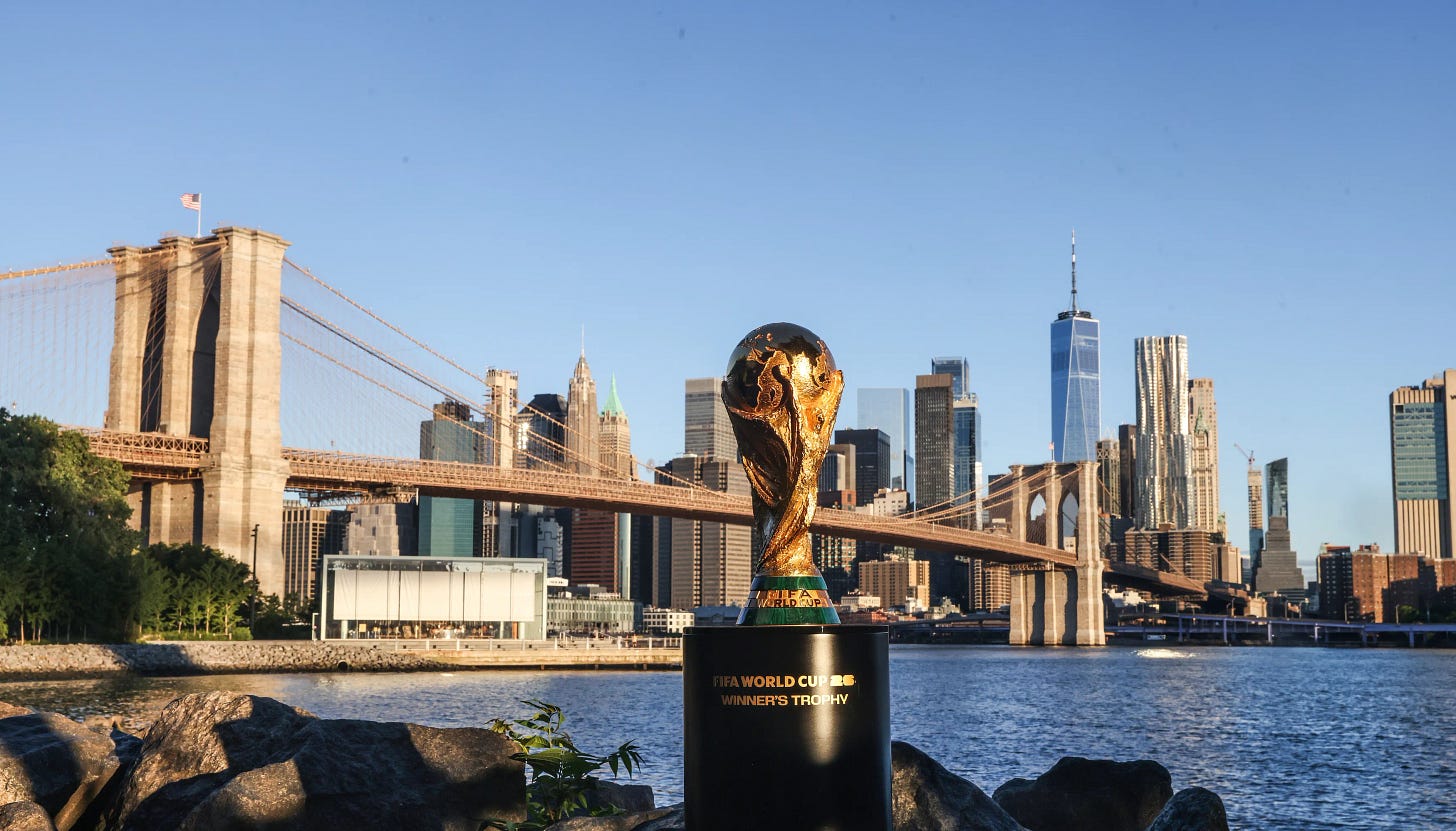Why Is FIFA Celebrating Its Bank Of America Sponsorship Deal
This is FIFA's first-ever global sponsor in the banking category with a multi-million-pound deal. Both will support the growth of the global game and engage diverse communities.
Haven't subscribed yet? Join our community of sports enthusiasts eager to broaden their understanding of global sports. Whether you're a student, professional, or business owner, our newsletter provides invaluable insights into the sports industry.
Ever since the U.S. Department of Justice brought the largest scandal in world football to light in 2015, U.S. corporations have kept their distance from FIFA. Subsequently, when this deal was first announced, I found myself questioning why there was so much vague PR surrounding it and why the brand chose to sponsor this property, especially considering it isn't as globally established as its competitors. I decided to wait and see if any other narratives would emerge, but none did, so here are my thoughts...
FIFA’s 2015 corruption scandal left the organization struggling to attract top-tier sponsors, particularly from the U.S. and Europe. Bank of America’s involvement signifies a turnaround in FIFA’s credibility, showing that it has rebuilt trust in the corporate world. This deal may attract more Western sponsors, enhancing FIFA’s image as a credible partner.
Bank of America typically partners with iconic sports brands to promote progress, aligning its brand with impactful global initiatives. This partnership aligns well with their strategy, allowing the bank to engage with global audiences while associating with a prestigious event like the FIFA World Cup. This is a step beyond just brand exposure—it integrates the bank into the world’s largest sporting event.
For FIFA, the partnership brings much-needed sponsorship money, which helps fund the expansion of the World Cup and other global initiatives. Given the rising costs of hosting the 2026 World Cup, such deals are essential for FIFA’s financial stability and growth plans, showing that it's not only about commercial gains but ensuring the sport’s sustainability.
Also, this deal comes shortly after FIFA deepened its ties to Saudi Arabia by confirming a 4-year sponsorship with the kingdom's state oil firm, Aramco. This wasn't a shock to anyone since the 2034 FIFA World Cup was practically teed up for Saudi Arabia.
The partnership comes as FIFA gears up for the 2026 World Cup, co-hosted by the U.S., Canada, and Mexico. Bank of America’s strong presence in North America positions it as an ideal partner to help FIFA increase its influence in this critical market, where football’s popularity is rapidly growing. It also demonstrates FIFA’s strategy to build local partnerships that resonate with the tournament's host regions.
In recent years, FIFA has struggled to attract major sponsors from the U.S., Japan, and Europe, with firms from China and the Gulf often filling the gap. Bank of America’s partnership represents a break from this trend, signalling that FIFA can once again attract top-tier Western sponsors, which boosts its credibility and appeal to global companies.
FIFA is making more noise about this partnership than previous ones, such as with Saudi Arabian energy giant Aramco. This suggests that FIFA views the Bank of America deal as more symbolic, representing a shift back to Western corporate partnerships rather than just seeking financial sponsorship from energy firms or state-backed organizations.
While sponsorship money is a key part of the deal, both FIFA and Bank of America emphasize a shared goal of helping football grow globally. The bank’s intention to support football at all levels, including grassroots development and engaging communities, suggests a broader vision than merely leveraging the FIFA World Cup for branding purposes.
The 2026 World Cup’s increased size and location in North America make it an attractive commercial proposition for sponsors. This deal could pave the way for more sponsorship deals with U.S.-headquartered companies, especially as FIFA continues to build credibility in the corporate world. If more deals materialize, this partnership could mark the beginning of a new era of Western corporate investment in football.
The partnership runs through 2026, indicating a long-term strategy for both FIFA and Bank of America. This timeline gives them ample opportunity to create lasting social impact and build a connection with global audiences through football. It signals a commitment from both sides to grow the sport and support communities worldwide, rather than simply focusing on short-term financial gains.
The partnership between FIFA and Bank of America appears to be about more than just brand awareness or securing sponsorship money. While financial support is undoubtedly a crucial factor, both organizations emphasize their shared goals of creating lasting social impact and growing the game globally.
Well, the only question that remains is how do you support the growth of the global game when the entire reason for this sponsorship is to take advantage of the tournament in your own country. More importantly, this event is a once-in-a-lifetime experience for football fans, and for brands, it presents a unique chance to create memorable experiences that foster brand loyalty and affinity.
Some housekeeping stuff
If you can’t find the newsletter, check your Spam folder or Promotions tab, and move this email to your primary inbox. Make sure to mark this email address as ‘not spam’.
Today’s recommended podcast…
In this episode of Business of Sport, the hosts - Charlie and Harry Stebbings, have some interesting discussions with Jonathan Turner, Non-Executive Director and Member of the Board at Tottenham FC.
The conversation delves into various aspects such as ownership of the club, management structure, and players, but what happens in the boardroom of football's biggest clubs. He disclosed the value of the Premier League to an international audience and the brands it has been able to create out of its clubs. Fans always want to know how their club measures success — Jonathan shares insight on that alongside what happens behind the scenes world of football governance.
Enjoy listening!





